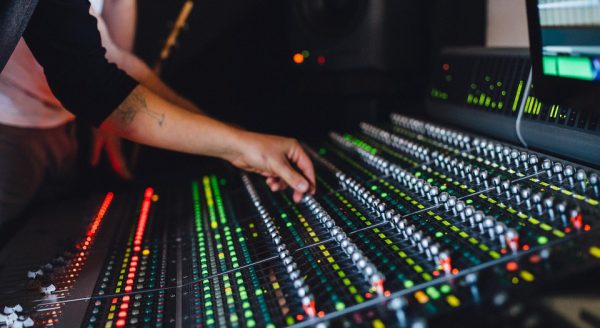
What is an Audio/Dubbing Assistant?
During the Audio Post Production, Sound Editors need a huge quantity of sound effects, recordings, voiceover and music tracks to compose a film’s soundtrack. Audio/Dubbing Assistants help them source and sort these materials.
Audio/Dubbing Assistants set up and take care of the maintenance of all audio suites. They assist during voiceover or sound recordings and locate and source all sound effects required by Sound Editors. They import any relevant music files, and after gathering all the required media they log and store tapes, recordings or files after labelling them.
Often working for Audio Post Production Houses (only big Post-Production companies have their own sound department), they work closely with Picture and Sound Editors, as well as Edit Assistants. It is also the Audio Assistants responsibility to help solve any unforeseen issues that occurs in the studio, from buying replacement equipment to troubleshooting software errors.
Key Skills
Being responsible for every media file used during post-production, Audio Assistants must be familiar with the dubbing/editing processes, be knowledgeable of sound libraries from which to source content, standard labelling, audio suites and software, IT operations etc.
The purpose of this role is essentially to facilitate the Sound Editor’s job, therefore a good eye for detail should ensure that every piece is always in its right place, whilst a fair amount of initiative and problem-solving should take a few responsibilities off the Sound Editor’s shoulders.
Often serving as communication mediator between clients, Editors and different departments, communication skills and diplomacy are crucial to this role.
How to get to work as an Audio/Dubbing Assistant
Most Sound/Dubbing Assistants progress from an entry-level role such as Runner, and manage to progress to this position after gaining significant experience in audio post-production.
Education and training
Although there is no formal training or qualification for this job, sound engineering or music related education might be beneficial.
However, practical experience and knowledge of how the Audio Editing department works would probably be even more valuable.
Where can it take you?
You should expect to keep this position for about two years before progressing to be either a Dubbing Mixer, Foley Editor, or Sound Editor before potentially continuing your career up the ranks of the Audio Editing Department.
Become an Audio/Dubbing Assistant today
If you are ready for the next step in your career, why not take a look at the latest Audio/Dubbing Assistant vacancies on our jobs board? You can view our latest vacancies here.
